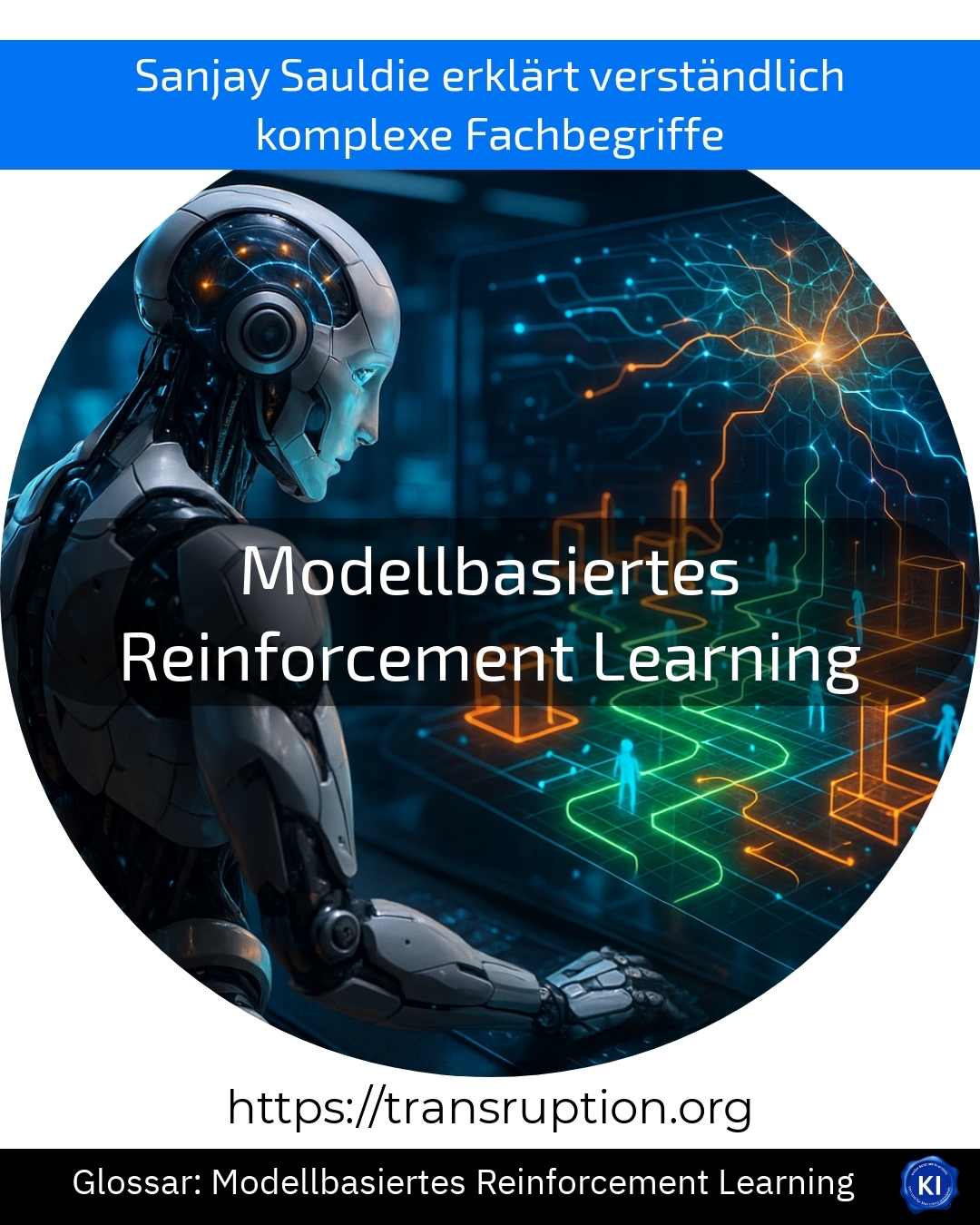Model-based reinforcement learning is a term that is particularly at home in the fields of artificial intelligence, automation, industry and Factory 4.0. It involves machines or computer programmes learning to make decisions independently - based on an internal model of the environment.
In contrast to other machine learning methods, model-based reinforcement learning not only observes the real results of its decisions, but also builds its own "model of the world". Using this model, it can try out actions before it actually carries them out. This allows the system to learn faster and more efficiently because it does not have to test every possibility in real life.
An illustrative example: Imagine a robot in a factory that has to learn how to stack parcels as efficiently as possible. Using model-based reinforcement learning, the robot first builds up an idea of how parcels behave when stacked. It can run through various strategies in the model and find out which one works best. Only when it has found a good method does it implement it in real life. This saves time and resources and reduces errors.















